Want to be in the loop?
subscribe to
our notification
Business News
TOWARD MODERN URBAN AGRICULTURE
Ho Chi Minh City will focus on developing urban agriculture and applying high technology to increase output value for businesses and farming households in 2025 and the following years.
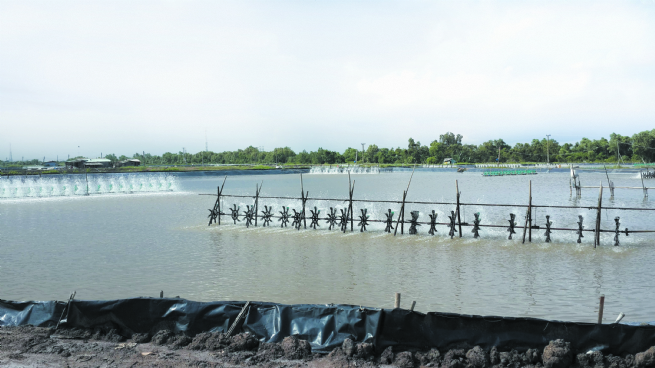
High-tech shrimp farming in Can Gio district
The city's agriculture has recovered and transformed into an urban agricultural model, with an emphasis on digital transformation and high-tech application in production. In 2024, the value of agricultural, forestry and fishery production exceeded VND19,900 billion, 0.2% higher than a year earlier.
In particular, agricultural exports have grown despite difficulties, with 13 million heads of ornamental fish and nearly 6,000 crocodile skins and products. The outcome was very encouraging, especially in the context of rapid urbanization and shrinking agricultural cultivation. However, the sector has not yet achieved the target growth of 1-1.5%.
Due to rapidly shrinking agricultural land, the city's agriculture has centered on key solutions to ensure good growth and expand the output of some crops and livestock. Development based on technology, automation and technical solutions is a strategic approach for the sector to bolster growth, enhance production value and product quality, and reduce environmental impacts.
Accordingly, businesses, cooperatives and producers have applied the internet to collect data, use garden management software or optimize the use of resources (water and fertilizers). Many urban agricultural models with new livestock and crops also proved their effectiveness in increasing product value and reducing production costs.
HCM City considers digital transformation one of its key tasks. Digital transformation in agriculture is an opportunity for the city to transition from ineffective traditional small-scale agricultural production lacking value chains, to a modern sector with new, sustainable values.
The city's agriculture will develop ecological production models associated with tourism and urban agriculture. This is also linked with advanced new rural development and rural urbanization.
In 2025 and the following years, the agricultural sector will continue to speed up urban agricultural projects based on the city’s approved master plan; focus on green agricultural production, meet direct consumer needs and supply inputs for green food processors; and actively accelerate digital transformation and high-tech application to management, and improve agricultural quality and value. The city will strive to achieve at least 70% of high-tech agricultural production by 2030.
Source: VCCI
Related News
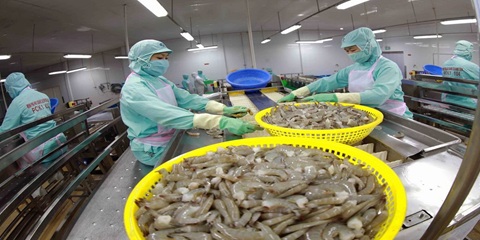
VIETNAM’S SEAFOOD EXPORTS HIT OVER US$10 BILLION IN JAN-NOV
Seafood export revenue in November alone amounted to nearly US$990 million, up 6.6% year-on-year. Key product groups posted solid gains. Shrimp exports rose 11.7% to over US$385 million, supported by strong demand for whiteleg shrimp and lobster. Tra fish shipments increased 9.7% to almost US$197 million, while marine fish, squid, and mollusk exports maintained their recovery.
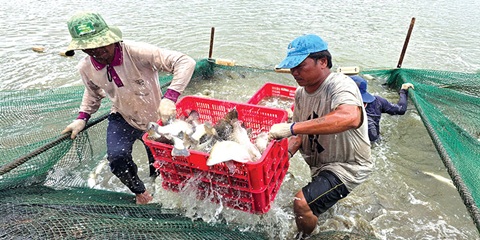
VIETNAM’S AGRO-FORESTRY-FISHERY EXPORTS HIT NEW RECORD IN JAN-NOV
Vietnam’s agro-forestry-fishery export revenue reached an estimated US$64.01 billion in the first 11 months of 2025, up 12.6% year-on-year and surpassing the full-year record of US$62.4 billion set in 2024. Agricultural exports reached US$34.24 billion, up 15% year-on-year, while livestock products brought in US$567.4 million, a 16.8% increase. Seafood exports rose 13.2% to US$10.38 billion, and forestry products earned US$16.61 billion, up 5.9%.

HANOI REPORTS RECORD-HIGH BUDGET REVENUE IN 2025
Hanoi’s budget revenue is estimated to reach VND641.7 trillion in 2025, the highest level ever recorded and nearly 25% above the revised target, according to a report by the municipal government. Data from the city’s socioeconomic performance review shows that total state budget collections in 2025 are projected to reach 124.9% of the adjusted plan and rise 24.9% from 2024, the Vietnam News Agency reported.
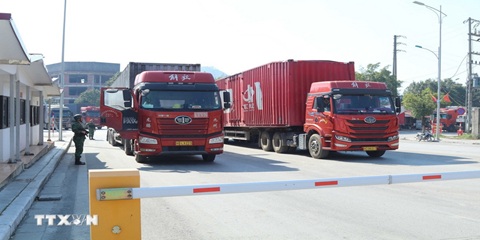
VIETNAM, CHINA TO PILOT TWO-WAY CARGO TRANSPORT AT LANG SON BORDER
Vietnam and China will launch a one-year pilot program on December 10 to allow two-way cargo transport through the Huu Nghi–Youyi Guan international border gates in Lang Son Province, reported the Vietnam News Agency. The Dong Dang-Lang Son Economic Zone Management Board said the trial aims to reduce transport costs and improve customs clearance capacity.
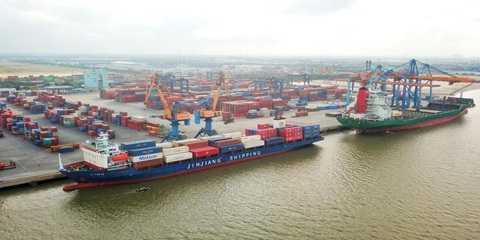
VIETNAM’S IMPORT-EXPORT VALUE NEARS US$840 BILLION IN JAN-NOV
The total value of Vietnam’s imports and exports was nearly US$840 billion between January and November this year, the highest level ever recorded, according to the National Statistics Office. In its latest report on the country’s socio-economic performance, the National Statistics Office highlighted a series of positive economic indicators, with trade emerging as one of the strongest drivers of growth.

OVER 19 MILLION INTERNATIONAL VISITORS COME TO VIETNAM IN JAN-NOV
Vietnam received more than 19.1 million international visitors in the first 11 months of 2025, a 20.9% increase year-on-year and the highest level ever recorded, according to the National Statistics Office. The figure surpasses the full-year record of 18 million arrivals set in 2019, before the Covid-19 pandemic. Nearly two million foreign visitors arrived in November alone, up 14.2% from October and 15.6% from the same period last year.
























